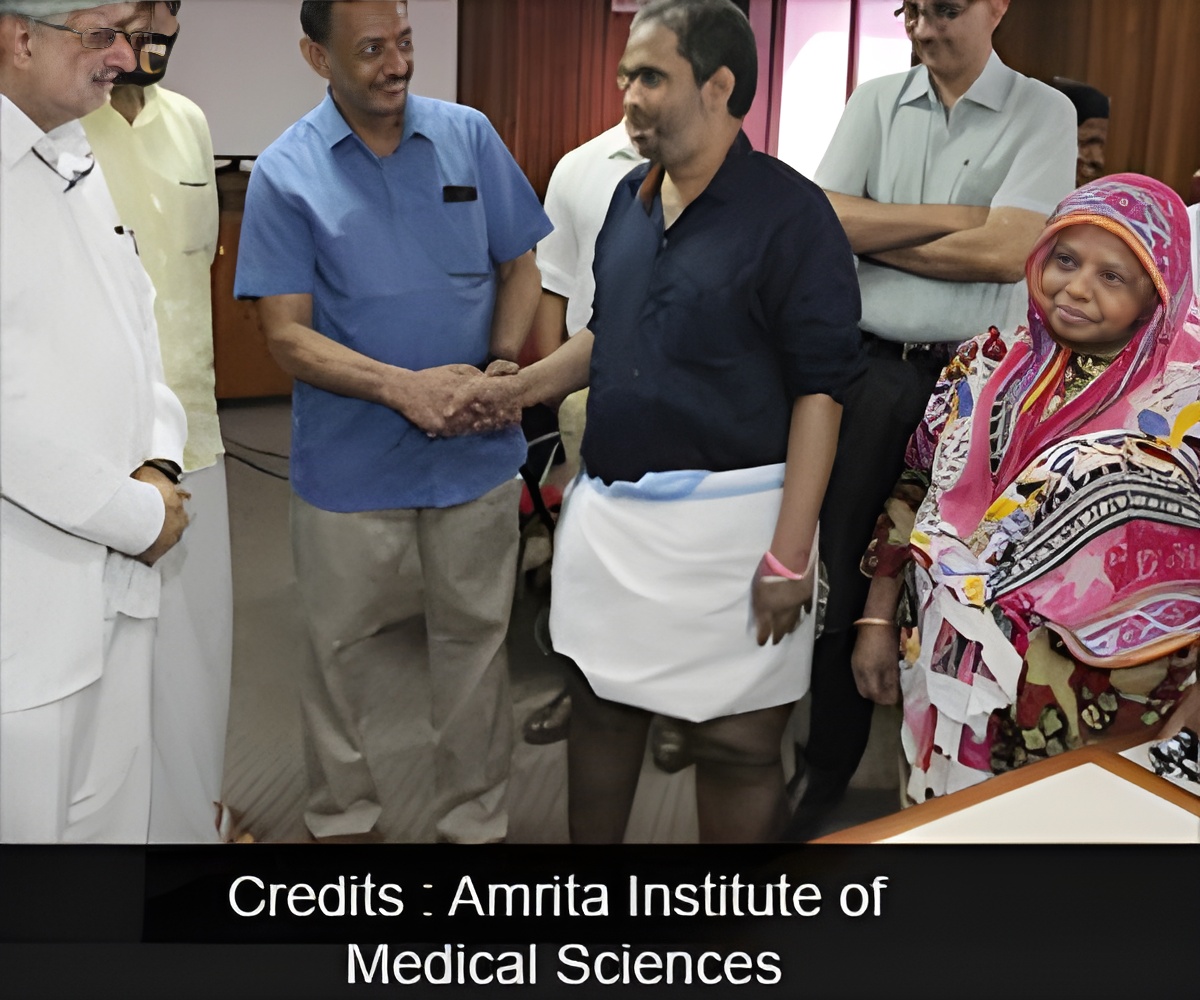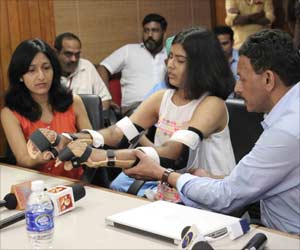
‘“I thank the doctors of Amrita Hospital from the bottom of my heart for enabling me to lead a normal life. It is amazing feeling to stand on my own two feet without any support. I had given up all hope and was even worried that my legs would need to be amputated if the infection spread. I have now got my life back and look forward to taking up a job again.”, said Saidalavi, the 46-year-old patient.’
Tweet it Now
Saidalavi was bedridden for the last two years because of the huge swollen mass which used to hang from his left thigh in a sac like structure that weighed a staggering 14 kg.
He was infected with lymphatic filariasis (elephantiasis) three decades ago and had previously undergone a few surgeries, but to no avail, the swelling did not decrease.The patient felt handicapped as even the smallest distance was to hard to cover by walking. He often needed the support of his two brothers to help him move. The family were turned down by a lot of hospitals due to the sheer size of the swelling which gave his leg a grotesque appearance. After a few years, matters become worse, as his swollen legs had begun to get infected.
Saidalavi’s life changed dramatically one day as a team of five lead surgeons and three anesthetists at Amrita Institute of Medical Sciences in Kochi removed the swollen mass in a surgery that lasted over five hours.
“It was a complex surgery. Several complications could rise because of the patient being overweight and his inability to walk. First, we treated him for four weeks with intensive antibiotic therapy to control infection in his legs. Then, the challenge was to institute Comprehensive Decongestive Therapy (CDT) which plays a major role in preparing a lymphedema patient for surgical treatment. In Saidalavi’s case, this went on for a month and involved Manual Lymphatic Drainage (MLD) and a special method of bandaging to make the legs softer by pushing the accumulated fluid to other parts of the body. The size of his swollen legs and immobility made this very difficult and needed at least four therapists instead of the usual one.” said Dr. Subramania Iyer, Head, Plastic & Reconstructive Surgery, Amrita Institute of Medical Sciences, Kochi.
He also added that: “Finally, his leg was ready for reduction. It was a challenge for anesthetists to manage the big excision in such an overweight patient. Saidalavi’s physical transfer to the operating table and correct positioning during surgery was also difficult and required meticulous planning. The surgery was successful and the swelling was removed. However, a massive leaking of fluid from the wound began, which would have prevented healing if sutured immediately. Therefore, we used the technique of vacuum-assisted dressing for the next seven days to suck out the fluid and reduce the size of the legs. Finally, a month after surgery, it was a delightful day for Saidalavi, his family and the lymphedema management team of Amrita Hospital to make him walk on his own without support. He will need further reduction surgery on both the legs after 6-9 months, and then he will be able to lead a normal life.”
Advertisement
Last year, Amrita Institute of Medical Sciences opened India’s most comprehensive lymphedema treatment clinic, due to the prevalence of lymphedema in the coastal regions of Kerala.
Advertisement
Source-Medindia









